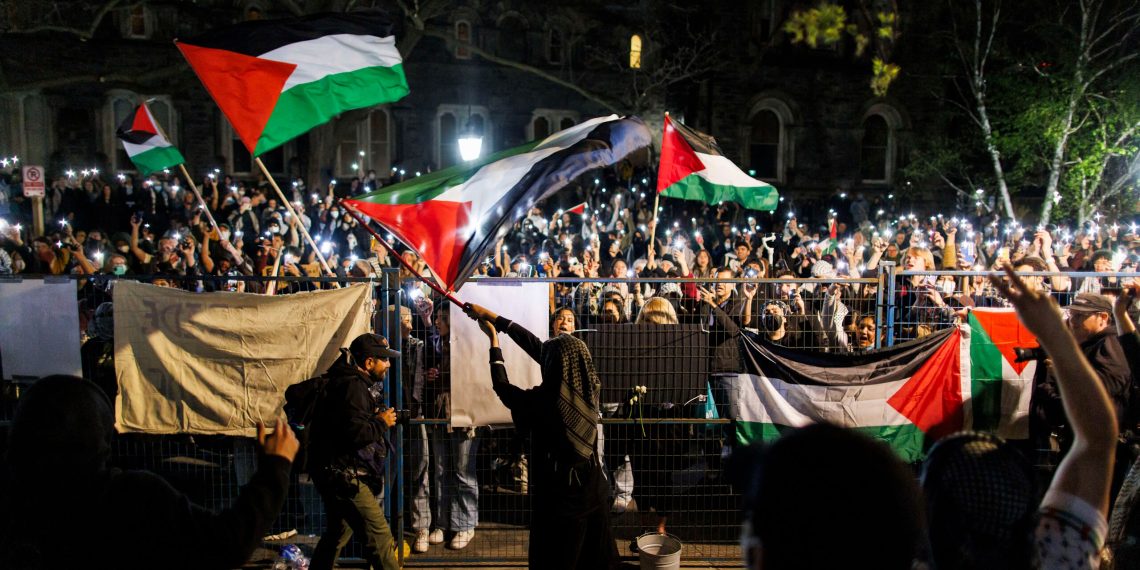This week, as the civilized peoples of the West once again recoil in horror at the grotesque and violent spectacle that is Hamas, it is worth remembering that the bloody, brutal, and depraved character of the Palestinian animosity toward Israel and the Jewish people did not arise from natural circumstances. The blind and merciless hatred the radical Palestinians feel toward Israel is neither normal nor accidental. It was carefully and purposefully cultivated over the course of nearly a century and has been intentionally intensified and amplified by the intellectual discourse in Europe and the United States.
The monstrous treatment of the Bibas family—the kidnapping and murder of an innocent woman and her two small children, the parading of the corpses through a celebratory rally, the apparent attempts to hide the real causes of the children’s death, and the utter refusal to return the remains of their mother, Shiri—is not the behavior one would ever expect from a conventional regime, even one that bills itself as the “resistance” to an “occupying” force. Rather, it is behavior consistent with the ugliest, vilest, most brutal sects man has ever known—the Nazis, Lenin and Stalin’s Soviets, Pol Pot’s Khmer Rouge, and so on. This is no mere coincidence. The Palestinian/Hamas-nik consciousness springs from many of the same sources as the most horrific regimes of the twentieth century.
Nowhere in the world have the anti-realist philosophies of cultural Marxism been more ingrained and more destructive than in the discourse around and the practical politics of the Middle East. Arab nationalism was an early 20th-century identity movement that surfaced amidst the dying of the Ottoman Empire and which was patterned in many ways on the German nationalist undertaking. The early thinkers and founders of Arab nationalism looked to define themselves and their people and to build an independent pan-Arab state that stretched, essentially, from the Atlantic Ocean to the Arabian Sea. The identity the Arab nationalists created for themselves and the Arab people was defined principally in terms of who the Arabs were not, rather than who they were. And who they were not is European colonialists.
In this sense, the Arab Nationalist movement was quintessentially postmodern. It arose in opposition to the “truth” of Western cultural hegemony and obsessed over the sins and perceived slights of the colonial powers—including the Zionists. It fashioned for itself a majestic yet “lost” past of the Arab people. And it sought to restore that past through opposition to the prevalent ideas of Western liberalism.
Additionally, and more to the point, the Middle East as it exists in the mind of the Western intellectual or wannabe intellectual today is largely the creation of a narrative that was fashioned more than five decades ago, in the fevered imagination of a literary theorist named Edward Said. Said was ostensibly a professor of comparative literature at Columbia University. But he was also the man most responsible for the current Western-liberal view of the Middle East and especially of the Israel-Palestinian conflict. […]
— Read More: amgreatness.com
-
Learn the TRUTH about Gold IRAs and how most precious metals companies play dirty.



